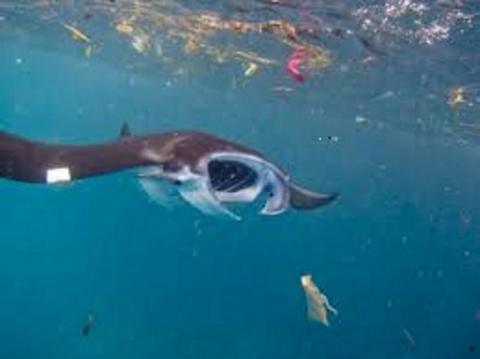
Microplastics Threat to Marine Megafauna
Tiny ‘microplastic’ particles pose a major threat to the world’s biggest species of megafauna – and may even be killing some of them, marine biologists have warned.
A major study into the effect of tiny plastic fragments on some the biggest marine mammals found that filter-feeding sharks, rays and whales – which can swallow thousands of cubic meters of water a day to capture plankton, fish and squid – are at risk of serious contamination.
Researchers estimate that fin whales in the Mediterranean Sea are ingesting thousands of tiny pieces of plastic a day – some of it from the water they swallow and some from the their prey.
These particles – 5mm in diameter or less – are damaging their digestive systems and poisoning them as chemicals leach from the particles inside their bodies – potentially causing enough harm to kill them.
“Microplastic contamination has the potential to further reduce population numbers of these species, many of which are long-lived and have few offspring throughout their lives,” said Elitza Germanov, of Murdoch University in Australia.
